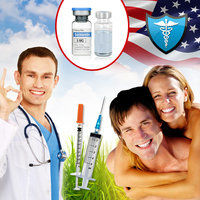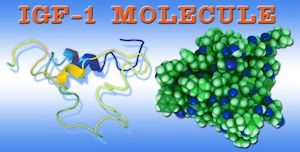Introduction to Testosterone Replacement Therapy (TRT)
Testosterone Replacement Therapy (TRT) has become a pivotal treatment for American males experiencing hypogonadism, a condition characterized by abnormally low levels of testosterone. This therapy aims to restore testosterone levels to normal, thereby alleviating symptoms such as decreased libido, fatigue, and muscle loss. While TRT can significantly improve quality of life, it is crucial for patients to be aware of potential allergic reactions that may arise during treatment.
The Prevalence of Allergic Reactions in TRT
Allergic reactions to TRT, although not common, can occur and range from mild to severe. These reactions are typically associated with the components of the delivery system rather than the testosterone itself. For instance, topical gels, injections, and patches each carry different risks of allergic responses. It is estimated that around 1-2% of patients using TRT might experience some form of allergic reaction, making it a concern that cannot be overlooked.
Types of Allergic Reactions
Allergic reactions to TRT can manifest in various forms. Mild reactions might include skin irritation, itching, or redness at the site of application or injection. More severe reactions can escalate to anaphylaxis, a life-threatening condition that requires immediate medical attention. Symptoms of anaphylaxis include difficulty breathing, swelling of the face or throat, and a rapid or weak pulse. It is vital for patients to recognize these symptoms and seek prompt medical care if they occur.
Identifying the Culprits: Common Allergens in TRT
The allergens in TRT are often found in the excipients or delivery systems rather than the testosterone molecule itself. For example, topical gels may contain alcohol or other solvents that can cause skin irritation. Injections might include preservatives like benzyl alcohol or oils that can trigger an allergic response. Patches, on the other hand, use adhesives that can lead to contact dermatitis. Understanding the specific components of the TRT formulation can help patients and healthcare providers identify potential allergens and choose an alternative delivery method if necessary.
Managing Allergic Reactions to TRT
If a patient experiences an allergic reaction to TRT, the first step is to discontinue the therapy and consult a healthcare provider. The provider may recommend switching to a different form of TRT that does not contain the offending allergen. For instance, if a patient is allergic to the adhesive in a patch, a gel or injection might be a suitable alternative. In cases of severe allergic reactions, such as anaphylaxis, emergency treatment with epinephrine may be necessary, followed by a thorough evaluation to prevent future occurrences.
Preventive Measures and Monitoring
To minimize the risk of allergic reactions, patients should be closely monitored by their healthcare providers during the initial stages of TRT. A detailed medical history, including any known allergies, should be taken before starting therapy. Additionally, patients should be educated about the signs and symptoms of allergic reactions and instructed on what to do if they experience any adverse effects. Regular follow-up appointments can help ensure that any issues are addressed promptly and effectively.
Conclusion: Balancing Benefits and Risks
Testosterone Replacement Therapy offers significant benefits for American males suffering from low testosterone levels. However, the potential for allergic reactions necessitates a cautious approach. By understanding the types of allergic reactions, identifying common allergens, and taking preventive measures, patients can safely navigate TRT. Open communication with healthcare providers and vigilant monitoring are essential to maximizing the benefits of TRT while minimizing its risks.
Contact Us For A Fast And Professional Response

- TRT's Impact on Mental Health in American Men: Benefits, Risks, and Holistic Approaches [Last Updated On: March 12th, 2025] [Originally Added On: March 12th, 2025]
- Testosterone Replacement Therapy: Benefits and Risks for Young American Men with Hypogonadism [Last Updated On: March 18th, 2025] [Originally Added On: March 18th, 2025]
- Optimizing Testosterone Replacement Therapy with Diet and Exercise: A Holistic Approach for American Men [Last Updated On: March 18th, 2025] [Originally Added On: March 18th, 2025]
- TRT Boosts Bone Health in American Males: Benefits and Considerations [Last Updated On: March 18th, 2025] [Originally Added On: March 18th, 2025]
- American Men's Experiences with Testosterone Replacement Therapy: Impacts and Insights [Last Updated On: March 18th, 2025] [Originally Added On: March 18th, 2025]
- Navigating Insurance Coverage for Testosterone Replacement Therapy: A Comprehensive Guide [Last Updated On: March 19th, 2025] [Originally Added On: March 19th, 2025]
- Testosterone Replacement Therapy: Dosage, Methods, and Risks for American Males [Last Updated On: March 19th, 2025] [Originally Added On: March 19th, 2025]
- Testosterone Replacement Therapy: Enhancing Male Health and Vitality in American Men [Last Updated On: March 19th, 2025] [Originally Added On: March 19th, 2025]
- TRT: Benefits, Risks, and Prostate Health Monitoring in American Men [Last Updated On: March 19th, 2025] [Originally Added On: March 19th, 2025]
- Future of TRT: Innovations, Personalization, and Accessibility in American Medicine [Last Updated On: March 20th, 2025] [Originally Added On: March 20th, 2025]
- Economic Impact of Testosterone Replacement Therapy on U.S. Healthcare System [Last Updated On: March 20th, 2025] [Originally Added On: March 20th, 2025]
- TRT and Holistic Health: Enhancing American Men's Wellness with Alternative Therapies [Last Updated On: March 21st, 2025] [Originally Added On: March 21st, 2025]
- TRT in American Men: Masculinity, Stigma, and Healthcare Dynamics [Last Updated On: March 21st, 2025] [Originally Added On: March 21st, 2025]
- TRT Enhances Sleep Quality in American Males with Low Testosterone [Last Updated On: March 21st, 2025] [Originally Added On: March 21st, 2025]
- Testosterone Replacement Therapy: Enhancing Mood in American Males [Last Updated On: March 22nd, 2025] [Originally Added On: March 22nd, 2025]
- TRT: Enhancing Weight Management in American Males Through Holistic Approach [Last Updated On: March 22nd, 2025] [Originally Added On: March 22nd, 2025]
- Hypogonadism and TRT: Benefits, Risks, and Lifestyle Impact on American Males [Last Updated On: March 23rd, 2025] [Originally Added On: March 23rd, 2025]
- TRT's Impact on Immune Function in American Men: Benefits and Risks [Last Updated On: March 23rd, 2025] [Originally Added On: March 23rd, 2025]
- TRT's Role in Managing Diabetes: Insights for American Men [Last Updated On: March 23rd, 2025] [Originally Added On: March 23rd, 2025]
- TRT Benefits for American Males: Enhancing Skin Health and Elasticity [Last Updated On: March 23rd, 2025] [Originally Added On: March 23rd, 2025]
- Managing Side Effects of Testosterone Replacement Therapy in American Males [Last Updated On: March 24th, 2025] [Originally Added On: March 24th, 2025]
- Testosterone Replacement Therapy: Benefits, Risks, and Management for Aging Males [Last Updated On: March 24th, 2025] [Originally Added On: March 24th, 2025]
- Testosterone Replacement Therapy: Enhancing Muscle Mass in American Men [Last Updated On: March 24th, 2025] [Originally Added On: March 24th, 2025]
- TRT's Potential to Enhance Cognitive Function in American Men: An Overview [Last Updated On: March 24th, 2025] [Originally Added On: March 24th, 2025]
- TRT: Benefits for American Males and Its Impact on Vision Health [Last Updated On: March 24th, 2025] [Originally Added On: March 24th, 2025]
- Testosterone Replacement Therapy: Monitoring, Adjusting, and Lifestyle for American Males [Last Updated On: March 24th, 2025] [Originally Added On: March 24th, 2025]
- Testosterone Replacement Therapy: Combating Fatigue in American Men [Last Updated On: March 24th, 2025] [Originally Added On: March 24th, 2025]
- TRT: Enhancing Emotional Well-being in American Men with Low Testosterone [Last Updated On: March 24th, 2025] [Originally Added On: March 24th, 2025]
- TRT's Impact on Cardiovascular Health in American Men: Benefits and Risks [Last Updated On: March 24th, 2025] [Originally Added On: March 24th, 2025]
- TRT's Impact on Male Fertility: Risks, Strategies, and Lifestyle Considerations [Last Updated On: March 24th, 2025] [Originally Added On: March 24th, 2025]
- TRT and Hair Loss: Understanding Risks and Management Strategies for American Men [Last Updated On: March 25th, 2025] [Originally Added On: March 25th, 2025]
- TRT's Impact on Digestive Health in American Men: A Comprehensive Overview [Last Updated On: March 25th, 2025] [Originally Added On: March 25th, 2025]
- TRT Benefits for Joint Health in American Males: A Comprehensive Overview [Last Updated On: March 25th, 2025] [Originally Added On: March 25th, 2025]
- TRT Enhances Injury Recovery in American Males: Benefits and Considerations [Last Updated On: March 25th, 2025] [Originally Added On: March 25th, 2025]
- Testosterone Replacement Therapy: Benefits, Risks, and Management for American Men [Last Updated On: March 25th, 2025] [Originally Added On: March 25th, 2025]
- TRT Enhances Cognitive Function and Mental Clarity in American Men [Last Updated On: March 26th, 2025] [Originally Added On: March 26th, 2025]
- TRT: A Promising Approach to Managing Chronic Pain in American Males [Last Updated On: March 26th, 2025] [Originally Added On: March 26th, 2025]
- Testosterone Replacement Therapy: Benefits, Risks, and Latest Research for American Men [Last Updated On: March 26th, 2025] [Originally Added On: March 26th, 2025]
- Testosterone Replacement Therapy: Benefits, Risks, and Management for American Men [Last Updated On: March 26th, 2025] [Originally Added On: March 26th, 2025]
- Testosterone Replacement Therapy: Enhancing Stamina in American Males [Last Updated On: March 26th, 2025] [Originally Added On: March 26th, 2025]
- TRT's Impact on Liver Health: Monitoring and Managing Risks [Last Updated On: March 26th, 2025] [Originally Added On: March 26th, 2025]
- Testosterone Replacement Therapy: Costs, Benefits, and Accessibility for American Men [Last Updated On: March 27th, 2025] [Originally Added On: March 27th, 2025]
- Testosterone Replacement Therapy: A Promising Treatment for Depression in American Males [Last Updated On: March 27th, 2025] [Originally Added On: March 27th, 2025]
- TRT's Potential Benefits for Respiratory Health in American Men: A Comprehensive Overview [Last Updated On: March 27th, 2025] [Originally Added On: March 27th, 2025]
- TRT: A Solution for Low Libido in American Males - Benefits, Safety, and Future [Last Updated On: March 27th, 2025] [Originally Added On: March 27th, 2025]
- TRT and Blood Pressure: Monitoring and Management Strategies for American Men [Last Updated On: March 28th, 2025] [Originally Added On: March 28th, 2025]
- Maximizing TRT Benefits: Diet, Exercise, Sleep, and Stress Management for American Males [Last Updated On: March 29th, 2025] [Originally Added On: March 29th, 2025]
- TRT: Managing Stress and Enhancing Well-being in American Males [Last Updated On: March 29th, 2025] [Originally Added On: March 29th, 2025]
- TRT's Impact on Kidney Function: Benefits and Risks for American Males [Last Updated On: March 29th, 2025] [Originally Added On: March 29th, 2025]
- Testosterone Replacement Therapy: Enhancing Confidence and Well-being in American Males [Last Updated On: March 30th, 2025] [Originally Added On: March 30th, 2025]
- Choosing the Right TRT Clinic: Key Factors for American Males [Last Updated On: March 30th, 2025] [Originally Added On: March 30th, 2025]
- Testosterone Replacement Therapy: Side Effects and Risks for American Men [Last Updated On: March 31st, 2025] [Originally Added On: March 31st, 2025]
- TRT's Complex Effects on Blood Sugar in American Men: A Comprehensive Analysis [Last Updated On: April 1st, 2025] [Originally Added On: April 1st, 2025]
- TRT's Impact on Cholesterol: Insights for American Males on Therapy [Last Updated On: April 1st, 2025] [Originally Added On: April 1st, 2025]
- TRT's Impact on Thyroid Function: Essential Insights for American Men [Last Updated On: April 4th, 2025] [Originally Added On: April 4th, 2025]
- Testosterone Replacement Therapy: Enhancing Health and Vitality in American Males [Last Updated On: April 5th, 2025] [Originally Added On: April 5th, 2025]
- Exploring TRT: Benefits, Risks, and Ethics for American Male Athletes [Last Updated On: April 8th, 2025] [Originally Added On: April 8th, 2025]
- Maximizing Health: Integrating TRT with Lifestyle and Pharmacological Therapies for American Males [Last Updated On: April 8th, 2025] [Originally Added On: April 8th, 2025]
- TRT's Impact on Dental Health: Insights for American Men [Last Updated On: April 9th, 2025] [Originally Added On: April 9th, 2025]
- TRT and Hearing Health: Considerations for American Males [Last Updated On: April 9th, 2025] [Originally Added On: April 9th, 2025]
- TRT: Boosting Social Confidence and Relationships in American Males [Last Updated On: April 9th, 2025] [Originally Added On: April 9th, 2025]
- Understanding Testosterone Replacement Therapy: Interpreting Lab Results for American Men [Last Updated On: April 10th, 2025] [Originally Added On: April 10th, 2025]
- Traveling with Testosterone Replacement Therapy: A Comprehensive Guide for American Men [Last Updated On: April 10th, 2025] [Originally Added On: April 10th, 2025]
- TRT Benefits for Eye Health in American Men: Dry Eye, AMD, and More [Last Updated On: April 11th, 2025] [Originally Added On: April 11th, 2025]
- TRT's Impact on American Men's Reproductive Health: Fertility and Sperm Production Effects [Last Updated On: April 12th, 2025] [Originally Added On: April 12th, 2025]

















